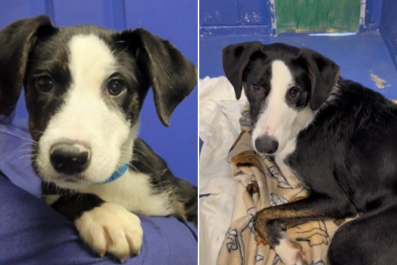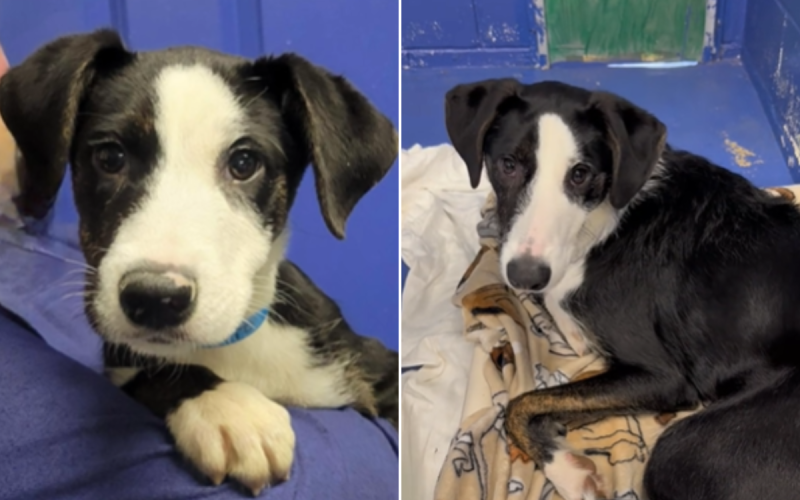
Puppy 'Sad, Confused, and Lonely' After Being Returned to Shelter
A shelter puppy has been left "sad, confused and lonely" after being adopted and then returned in the most heartbreaking of circumstances.
Prince has always been a popular pup at PawSafe, a not-for-profit first established in 1995 with the mission of ending the unnecessary euthanasia and suffering of companion animals. "He loves everyone he meets, plays well with other dogs in the play yard, and craves nothing more than to rest his head on a loving lap," Diane Mangold, the director of PawSafe, told Newsweek.
Primarily based in Connecticut, with some foster-based services in New York, PawSafe's work is focused mostly on helping dogs from high-kill shelters in the southern states to provide them with what Mangold describes as a "second chance at life."
"We work closely with our partner shelters to identify dogs that are at risk of euthanasia due to overcrowding and limited resources," Mangold said. "Once identified, these dogs are transported to our facility where they receive comprehensive medical care."
Once fit and healthy, the aim is to place these dogs with families capable of providing the care and affection they so desperately deserve. Prince was one of these pups and, for a time, it looked like PawSafe had achieved its goal: Prince was adopted.
Sadly, though, it did not last, for reasons entirely beyond the dog's control. "Prince's adopter had initially committed to giving him a forever home," Mangold said. "However, when a job offer came along that required extensive travel, he chose to prioritize his career over maintaining a stable home for Prince."
Any number of factors can influence an adopter's decision to return a dog. In 2021, a study published in the journal Scientific Reports saw researchers attempt to identify some of the key characteristics of unsuccessful adoptions based on a retrospective analysis of 23,932 animal records from a U.S. shelter.
The researchers found that adult dogs, aged between 2 and 8, had the greatest odds of post-adoption return, while toy and terrier breeds were 65 per cent and 35 percent respectively less likely to be returned compared with herding breeds. The study also found that pit bull-type breeds were more likely to be returned multiple times.
"Unfortunately, not every adoption works out as planned," Mangold said. "While there are many valid reasons for returning a dog, such as allergies, the death of a caretaker, or financial difficulties, there are also times when an adopter decides that dog ownership isn't the right path for them."
While it is the job of everyone involved in PawSafe to help pick up the pieces and help Prince recover and move on from this setback, it is clear to Mangold that the experience has taken its toll on this happy-go-lucky dog—but he isn't giving up.
"Prince is understandably sad, confused, and lonely," Mangold said. "He watches hopefully as people walk by, searching for his special person. Despite this setback, Prince remains remarkably resilient."

PawSafe workers are already making efforts to help him find a new home, posting a video featuring some of his highlights alongside a reminder that "forever means always."
Mangold said they already have a good idea of the kind of home and human companion that would bring out the best in this sweet-natured boy. "Prince adores people, children, toys, and other dogs," she said.
"He would thrive with an active individual or family who will make him an integral part of their lives. He needs a home that is truly ready to commit to him forever."
